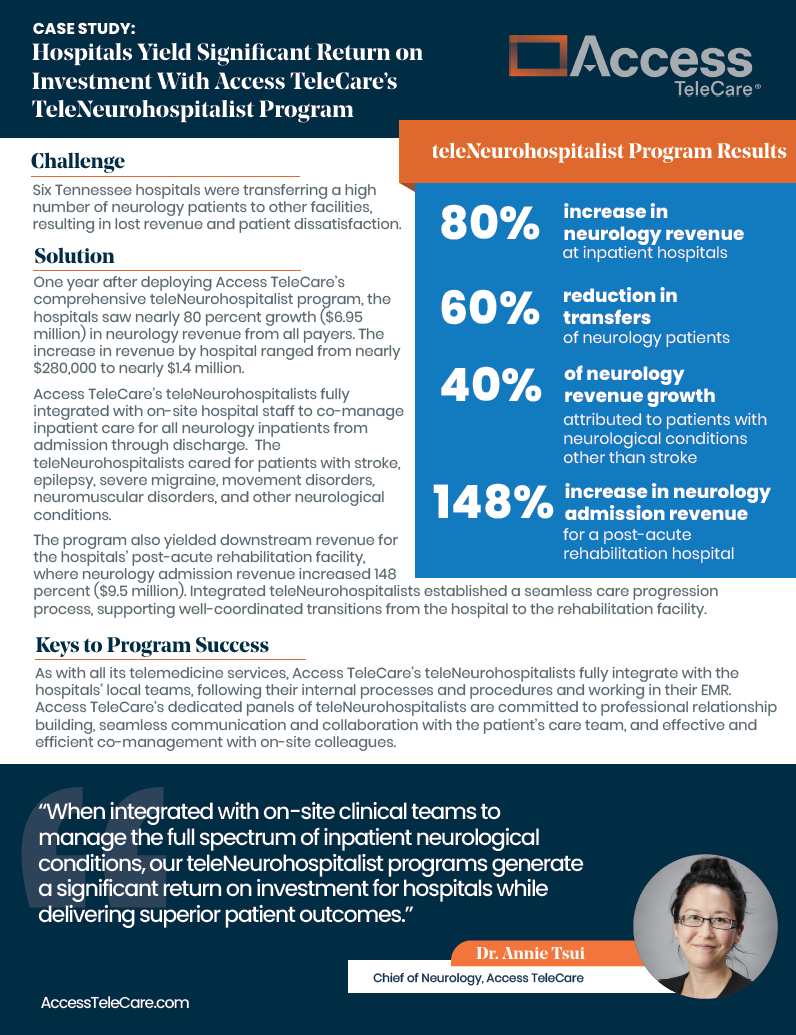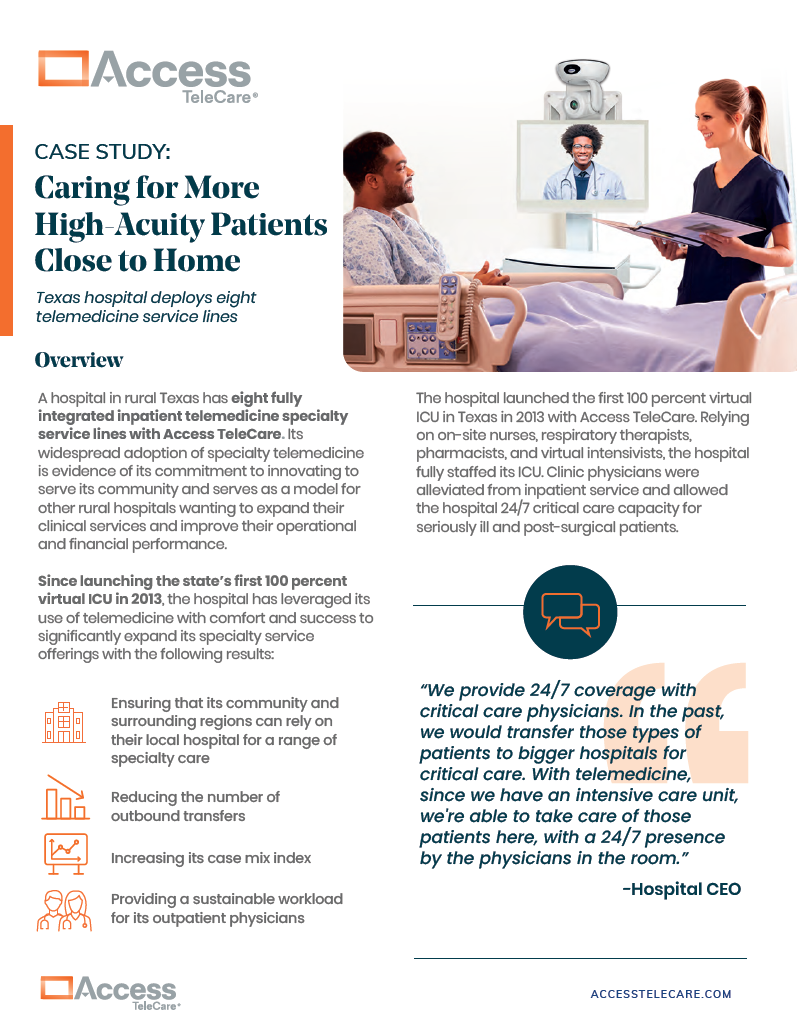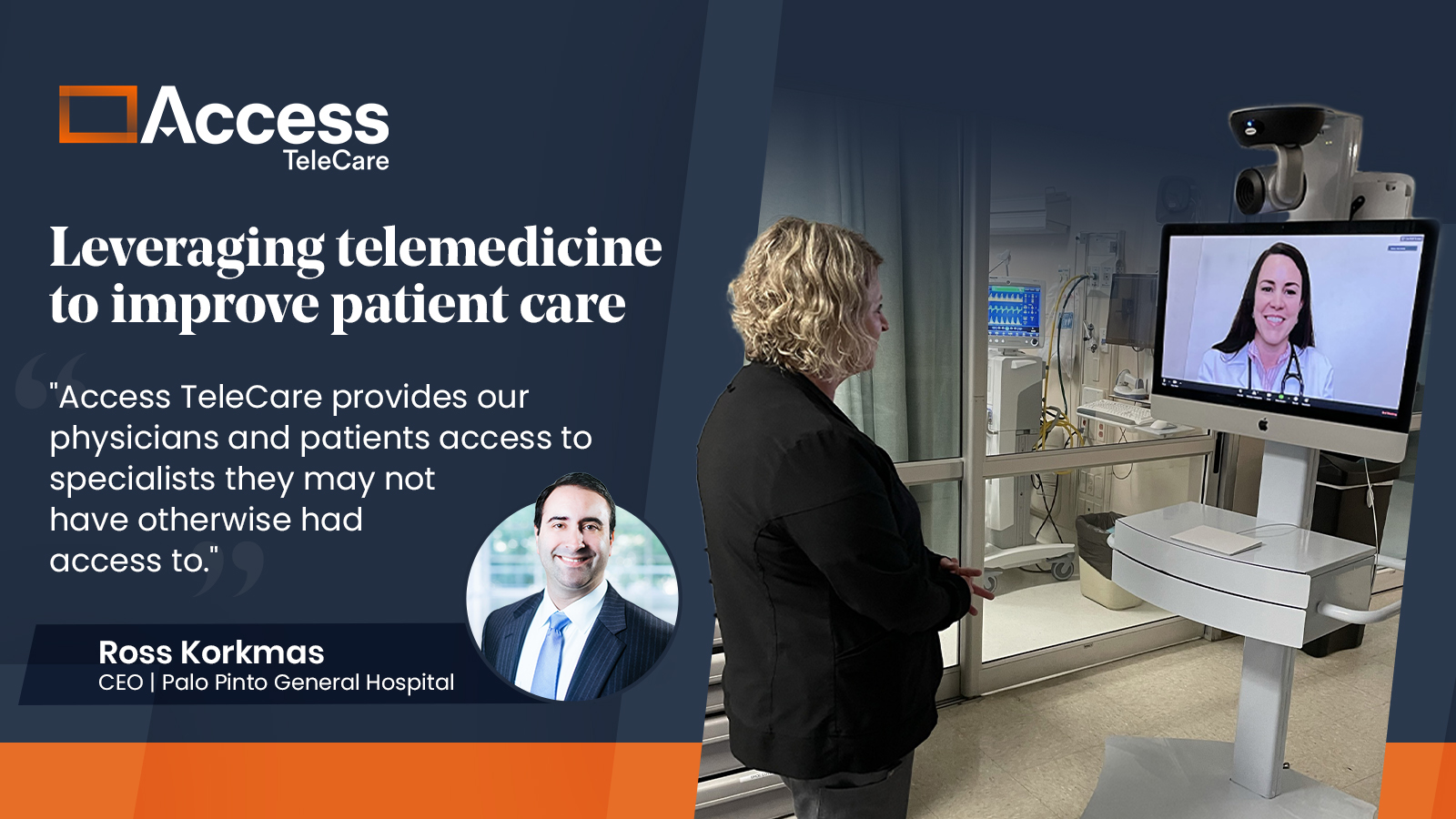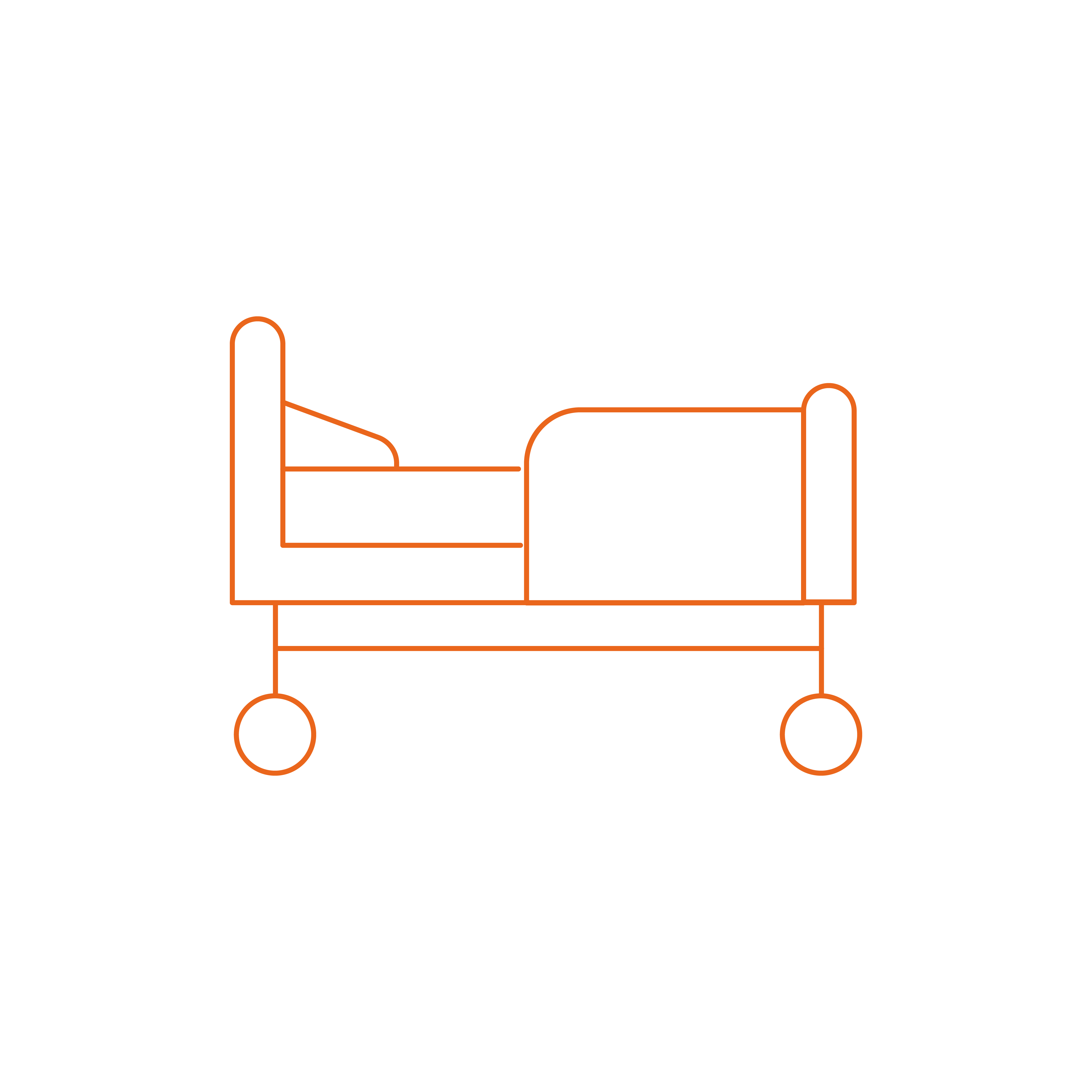Video: Strategies for Overcoming Healthcare Challenges with Telemedicine Experts
For more than two decades, Access TeleCare has operated at the forefront of virtual care delivery, advancing telemedicine as a sustainable, strategic solution for the challenges modern health care providers face. Our telemedicine programs have yielded significant results for our hospital partners and a wealth of insights into the future of health care delivery.
Webinar Key Points
Acute Telemedicine is the Answer to Hospital Financial & Staffing Challenges
Acute Telemedicine is the Answer to Hospital Financial & Staffing Challenges
Telemedicine addresses physician burnout, workforce shortages, specialist availability, access to care, and timeliness of care challenges.
Hospital-based Telemedicine Works for Both Rural & Urban Communities
Hospital-based Telemedicine Works for Both Rural & Urban Communities
Telemedicine can transform care for both rural and urban communities. The webinar focused on our neurology and behavioral health programs.Telemedicine is a Game-Changer for Acute Behavioral Health Care
Telemedicine is a Game-Changer for Acute Behavioral Health Care
ED boarding and wait times were reduced while also improving the patient experience and patient health outcomes.Neurology revenue increased 300% upon adding teleNeurology services
Neurology revenue increased 300% upon adding teleNeurology services
Timely acute stroke care, fast EEG readings, and high-quality teleNeurohospitalist services provided better care and reduced transfers, enabling patients to stay local and get care quickly.
See our Telemedicine Programs in Action
Hospitals Yield Significant ROI with Access TeleCare’s TeleNeurohospitalist Program
Access TeleCare’s teleNeurohospitalists fully integrated with on-site hospital staff to co-manage inpatient care for all neurology inpatients from admission through discharge. The teleNeurohospitalists cared for patients with stroke, epilepsy, severe migraine, movement disorders, neuromuscular disorders, and other neurological conditions.
Caring for More High-Acuity Patients Close to Home
When rural hospitals implement telemedicine, they typically have one, possibly two, service lines. This hospital in rural Texas has eight. Since launching an Access TeleCare teleICU and telePulmonary/Critical Care program in 2013, the hospital continued to expand its telemedicine services.
See more insights from Access TeleCare
Access TeleCare Named to Becker’s 2023 List of Telehealth Companies to Know
Access TeleCare was recently featured in Becker’s Hospital Review’s 2023 list of telehealth companies to [...]
National Nurses Week 2023: Celebrating and Supporting our Nurses
May 6 – 12 is National Nurses Week, a time to celebrate the nurses who [...]
Access TeleCare Infectious Disease Chief Joins Leadership Program
Dr. Jade Le Selected for the Infectious Diseases Society of America Community of Leaders [...]
How Telemedicine Elevates Your Nursing Staff While Reducing Burnout
Reducing the burnout of your nurse workforce and expanding their capabilities at the same [...]
Worsening OB-GYN Shortage Highlights Need for TeleMaternal-Fetal Medicine
As a 5.2 percent decrease in OB-GYN residency applicants threatens to worsen the existing OB-GYN [...]
Rural Hospital CEO Leverages Telemedicine to Provide Specialty Care
As many rural hospitals across the country are facing tremendous challenges that threaten their [...]




















